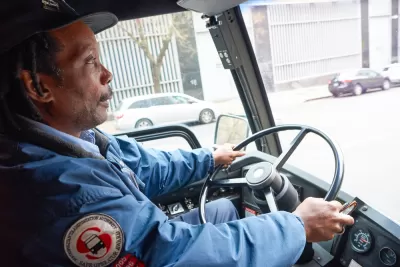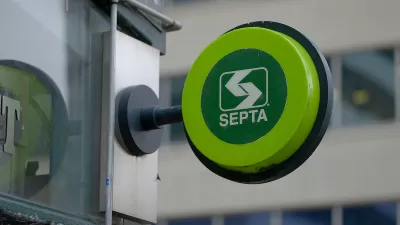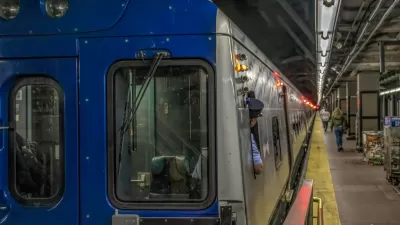An analysis of California transit employees found a high rate of burnout among operators who face unpredictable work schedules, high housing costs, and occasional violence.

A new report from UCLA's Institute for Transportation Studies highlights the causes of the persistent labor shortage in public transit at agencies across California.
As Melanie Curry explains in Streetsblog California, the report finds that while better pay is an important factor for attracting and retaining transit workers, other obstacles include “a culture of exhaustion, burnout, and physical injuries” perpetuated by “understaffing, unpredictable and complicated scheduling practices, overtime requirements, long commutes, and too-short, sometimes rare breaks.”
The report notes that part of the problem stems from “the divide between operations vs capital funding,” which makes it easier for agencies to access capital funding — for building new lines or buying equipment — than operational funding, which supports worker wages and maintenance costs.
The report’s authors suggest changes such as streamlining hiring practices, reducing split shifts, providing bathrooms and bathroom breaks for workers, and limiting fare enforcement duties for operators.
FULL STORY: To Recruit Transit Workers, More Than Higher Pay Is Needed

Trump Administration Could Effectively End Housing Voucher Program
Federal officials are eyeing major cuts to the Section 8 program that helps millions of low-income households pay rent.

Planetizen Federal Action Tracker
A weekly monitor of how Trump’s orders and actions are impacting planners and planning in America.

Ken Jennings Launches Transit Web Series
The Jeopardy champ wants you to ride public transit.

How Project Connect Would Change ‘The Drag’
A popular — and sometimes deadly — Austin road will exchange car lanes for light rail.

Milwaukee Road to Get Complete Streets Upgrades
The city will reduce vehicle lanes and build a protected multi-use trail including bioswales and other water retention features on its ‘secret highway.’

Tackling Soil Contamination With Nature-Based Solutions
Los Angeles County residents and experts are turning to nature-based methods like bioremediation to address long-standing and fire-exacerbated soil contamination without resorting to costly and disruptive removal.
Urban Design for Planners 1: Software Tools
This six-course series explores essential urban design concepts using open source software and equips planners with the tools they need to participate fully in the urban design process.
Planning for Universal Design
Learn the tools for implementing Universal Design in planning regulations.
Ada County Highway District
Clanton & Associates, Inc.
Jessamine County Fiscal Court
Institute for Housing and Urban Development Studies (IHS)
City of Grandview
Harvard GSD Executive Education
Toledo-Lucas County Plan Commissions
Salt Lake City
NYU Wagner Graduate School of Public Service





























